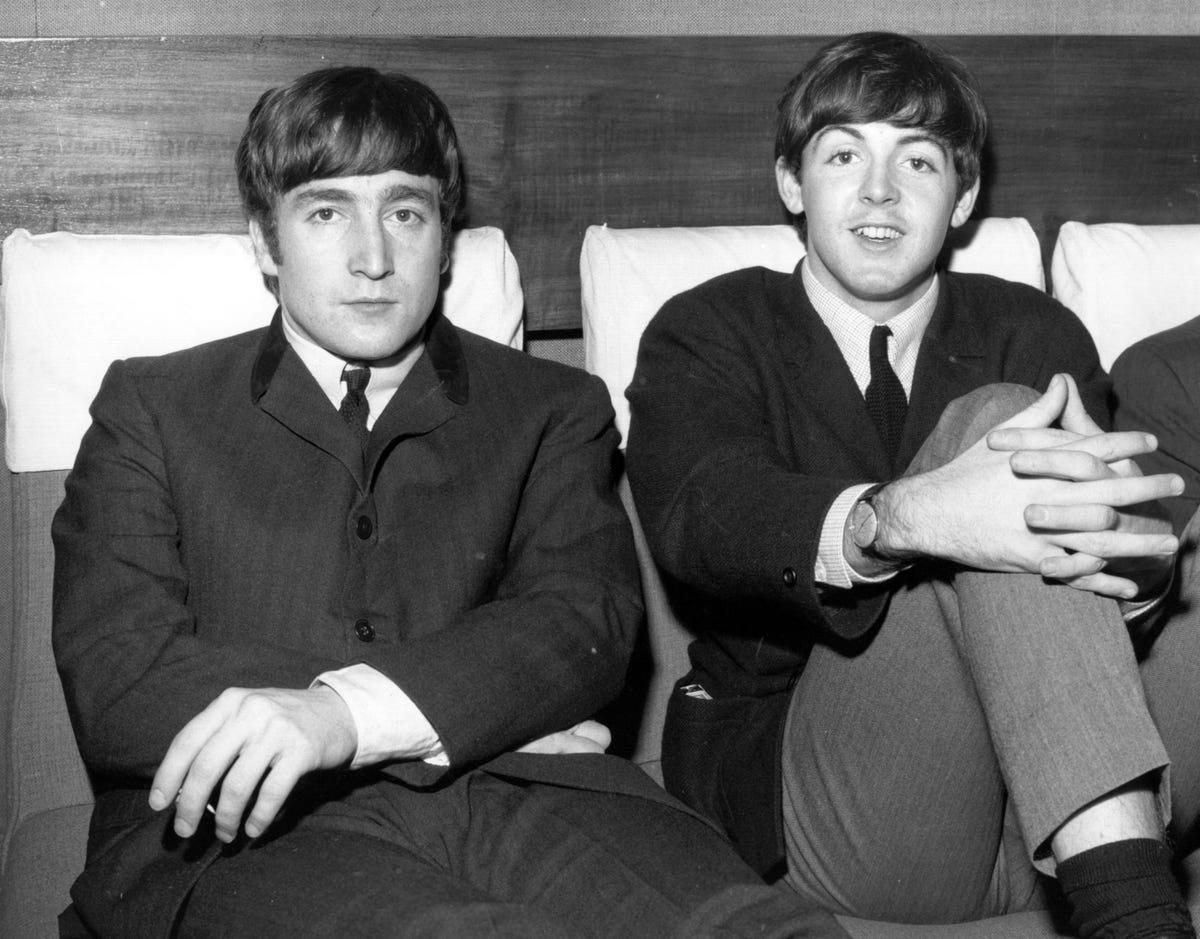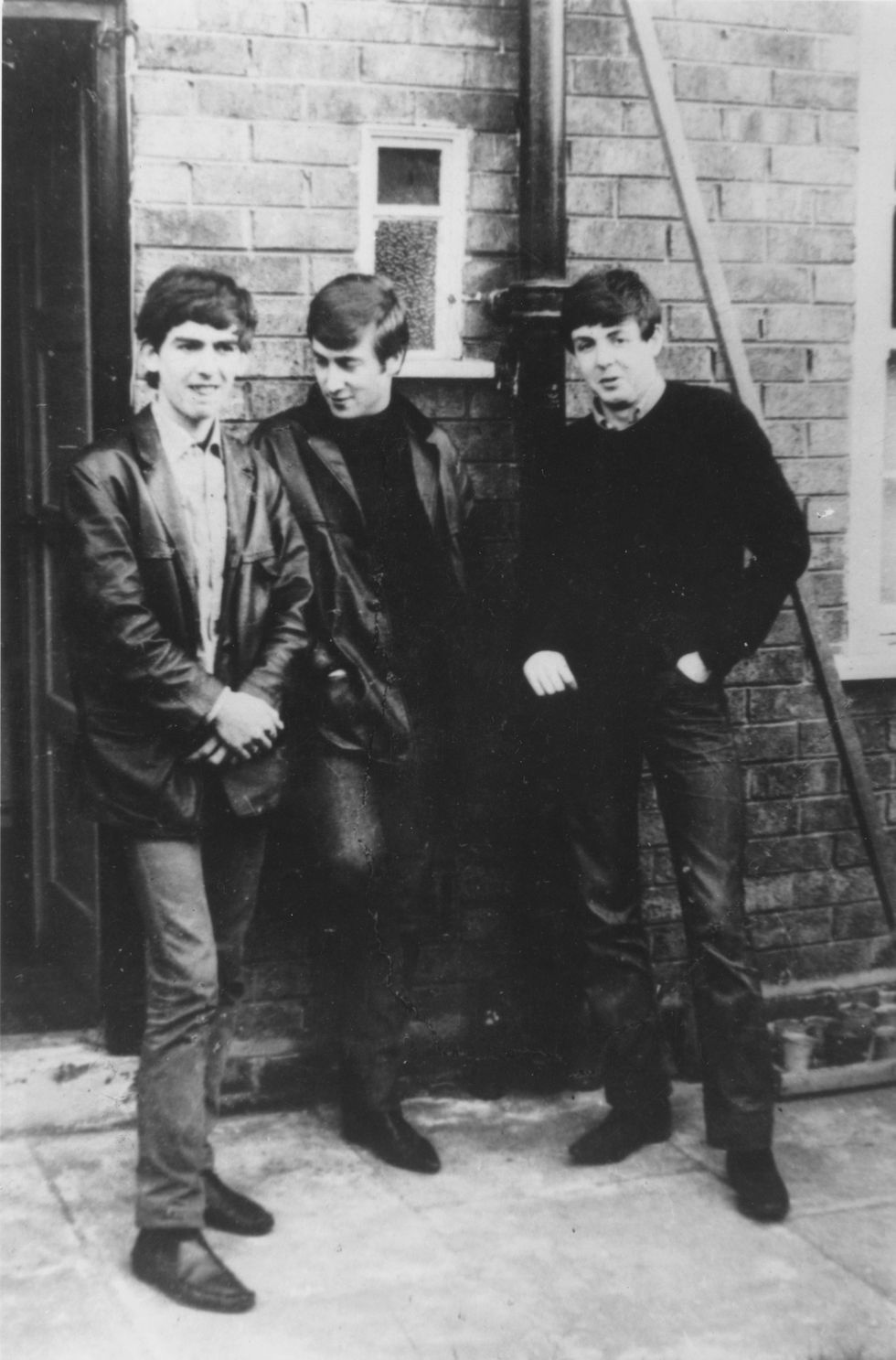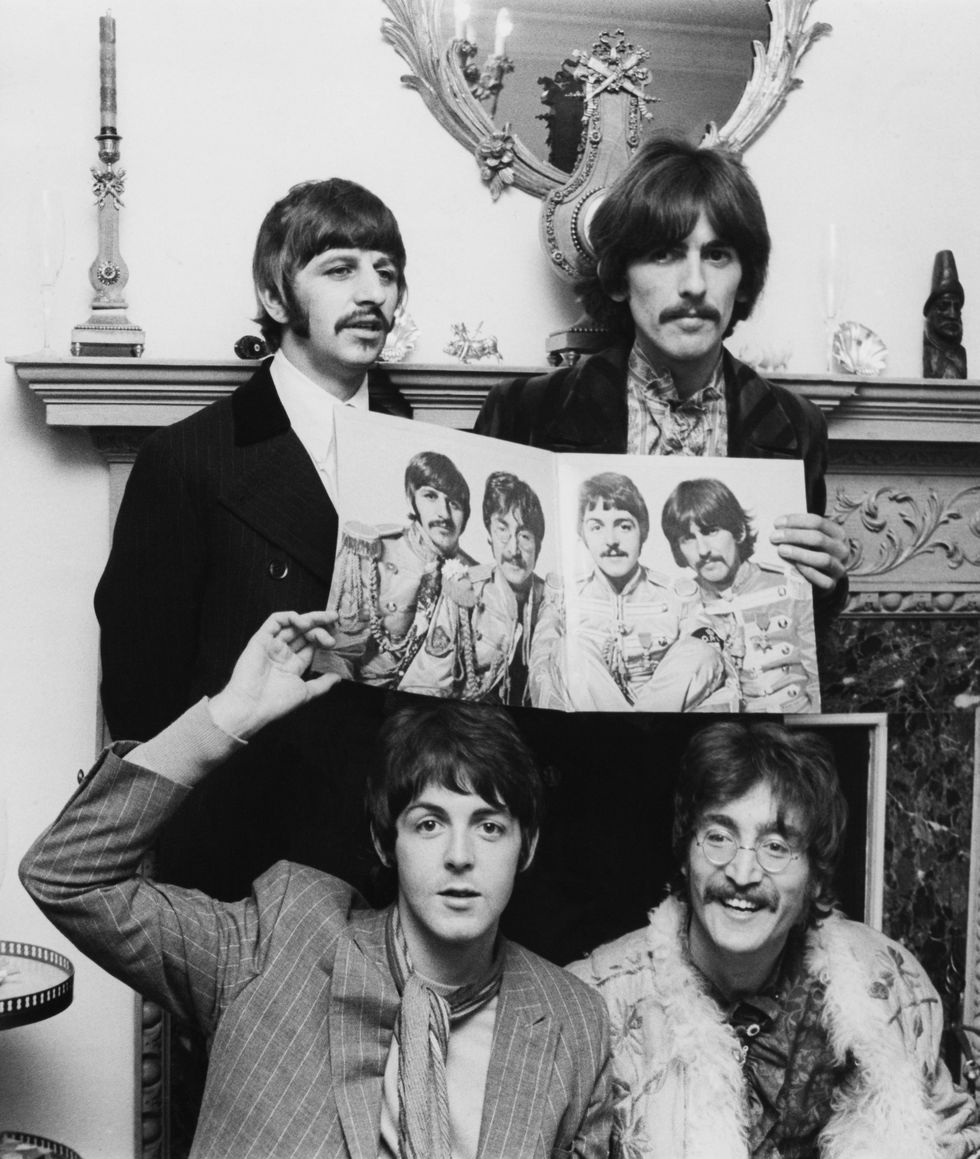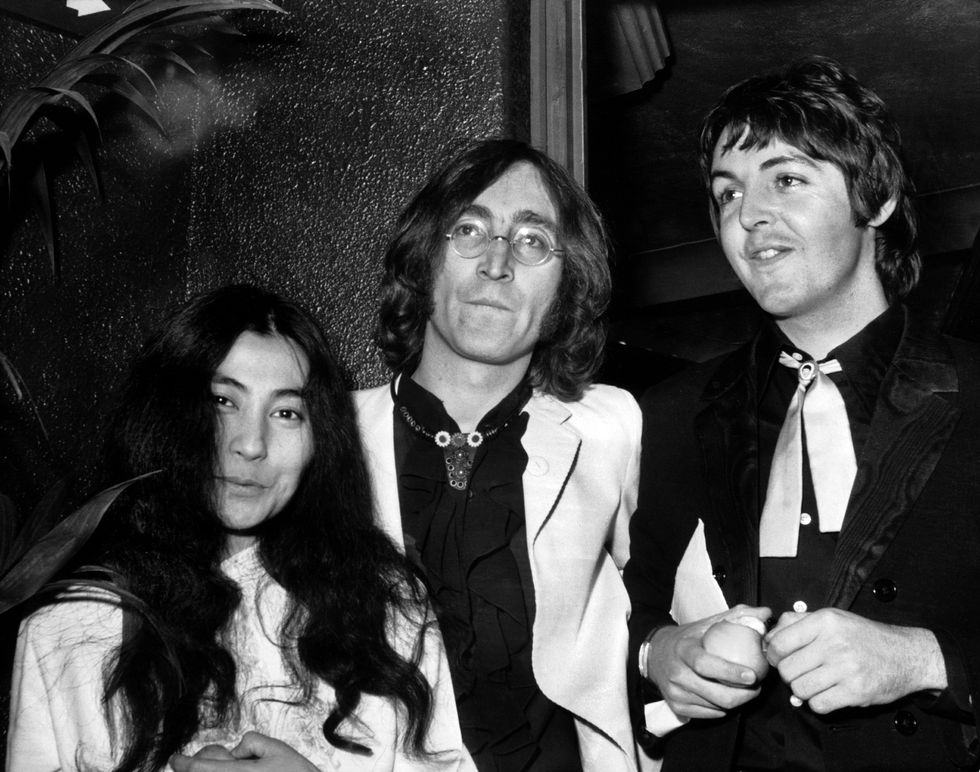You are viewing the article Inside John Lennon and Paul McCartney’s ‘Irreplaceable’ Bond — and Epic Fall Out at Thptlaihoa.edu.vn you can quickly access the necessary information in the table of contents of the article below.

It felt like any other summer day in Liverpool, but a chance encounter turned into one of the most notable days in music history: the day John Lennon first met Paul McCartney. On July 6, 1957, St. Peter’s Church in Woolton Village was having a church party, where The Quarrymen — Lennon’s skiffle band at the time — played.
“Apparently, we were on stage playing the Del-Vikings doo-wop number ‘Come Go With Me,’ and Paul arrived on his bicycle and saw us playing,” Rod Davis of The Quarrymen recalled to Billboard. “It was somebody we didn’t know, Paul, who met someone we did know. It wasn’t a big deal. You explain this to people, particularly Americans, and they expect there to be angels hiding behind clouds blowing trumpets. It’s all terribly, terribly a non-event — except in hindsight.”
During the meeting, mutual friend Ivan Vaughan introduced the two — and McCartney joined the band a few months later. While they eventually changed the direction of their sound to rock ‘n’ roll — and their name to The Beatles — what made their eventually success so sweet was the tight friendship between Lennon and McCartney, the songwriters of the group.
Lennon and McCartney bonded over losing their mothers at a young age
While their likemindedness for music brought them together, their connection grew out of a shared sense of tragedy. McCartney had lost his mother, Mary, from breast cancer in October 1956 when he was 14 and Lennon’s mother, Julia, was killed by a speeding car in July 1958 when he was 17.
“We had a kind of bond that we both knew about that, we knew that feeling,” McCartney told The Late Showwith Stephen Colbertin September 2019. “I never thought that it affected my music until years later. I certainly didn’t mean it to be. But it could be, you know those things can happen.”
While many believe those painful losses led to powerful songs like 1965’s “Yesterday,” which came to McCartney in a dream, and 1970’s “Let It Be,” McCartney never outrightly had those intentions.
READ MORE: Meet Brian Epstein, the Man Who Discovered The Beatles
McCartney said he ‘would do anything’ for Lennon
Lennon and McCartney always understood that their kinship couldn’t be replicated. “John and me, we were kids growing up together, in the same environment with the same influences,” McCartney told Rolling Stone in 2016. “He knows the records I know, I know the records he knows. You’re writing your first little innocent songs together. Then you’re writing something that gets recorded. Each year goes by, and you get the cooler clothes. Then you write the cooler song to go with the cooler clothes. We were on the same escalator – on the same step of the escalator, all the way. It’s irreplaceable – that time, friendship and bonding.”
In short, they were family. “He’s like a brother. I love him,” Lennon, who was shot dead on December 8, 1980, said in one of his last interviews. “Families — we certainly have our ups and downs and our quarrels. But at the end of the day, when it’s all said and done, I would do anything for him, and I think he would do anything for me.”
Near the end of The Beatles, McCartney didn’t ‘see an awful lot of support’ from his bandmates
But the fairytale didn’t last. What started out as a very fair four-way collaboration with their fellow Beatles bandmates George Harrison and Ringo Starr — which garnered 20 No. 1 hits — dissolved into nothing but tension.
At one session in January 1969, McCartney pleaded to his bandmates according to Rolling Stone, “I don’t see why any of you, if you’re not interested, got yourselves into this. What’s it for? It can’t be for the money. Why are you here? I’m here because I want to do a show, but I don’t see an awful lot of support.”
He was met with stone-cold silence.
It was a telling moment, which eventually led to the band’s breakup the next year. While fingers have been pointed at Lennon’s love, Yoko Ono, and on the band’s new manager, Allen Klein, a myriad of factors piled together caused the legendary breakup in April 1970.
The band’s dynamics had always been fair, but subtle. Since Lennon started the band, he technically had seniority, even though they always split their votes evenly four ways. Their global success was so far out of comprehension that they sought to find purpose, taking a retreat to study transcendental meditation at Maharishi Mahesh Yogi’s ashram in Rishikesh, India. Instead, it added to the tension, as they started leaving one by one.
McCartney also said that the discovery that Lennon and Ono were using heroin “was a fairly big shocker,” compounding the stress. However that played out behind closed doors, it’s clear that McCartney and Lennon hardly collaborated on music together again after Ono got so deep into the picture.
READ MORE: Did Yoko Ono Break Up The Beatles?
When The Beatles broke up, Lennon said ‘the dream is over’
Ultimately contract disputes, creative disagreements — and oh-so-many heated arguments (in one, Lennon wanted his songs and McCartney’s songs on opposites sides of a vinyl record) unraveled into disrepair. And in April 1970, after McCartney refused to push back the release of his solo debut to allow Let It Be to come out first, the break-up was complete. McCartney beat Lennon to the punch, officially announcing the band was over.
“I wanted to do it and I should have done it,” Lennon said. “I was a fool not to do it, not to do what Paul did, which was use it to sell a record. I started the band, I disbanded it. It’s as simple as that… the dream is over.”
But McCartney countered that The Beatles breakup was because of “straightforward jealousy” and that he wasn’t to blame since “Ringo left first, then George, then John. I was the last to leave! It wasn’t me!”
READ MORE: How The Beatles Got Together and Became the Best-Selling Band of All Time
Lennon wrote McCartney an angry letter
The end of The Beatles wasn’t the end of the rivalry between Lennon and McCartney. A letter from Lennon, estimated to be from about 1971, which was auctioned off by Boston’s RR House in 2016, captured the level of the anger in typewritten font.
Written on the letterhead of Bag Productions Inc. — Lennon and Oko’s joint company, it reads, “I was reading your letter and wondering what middle aged cranky Beatle fan wrote it,” going on to point the finger at McCartney’s wife, Linda.
One of the most heated passages reads, “Do you really think most of today’s art came about because of The Beatles? I don’t believe you’re that insane — Paul — do you believe that? When you stop believing it you might wake up! Didn’t we always say we were part of the movement — not all of it? — Of course, we changed the world, but try and follow it through. GET OFF YOUR GOLD DISC AND FLY!”
They began to reconcile during Lennon’s ‘Lost Weekend’ period
From the summer of 1973 to early 1975, Lennon disappeared into a creative and outrageous period of his life dubbed his Lost Weekend — which included an accidental reconciliation with McCartney.
Lennon was at Burbank Studios on March 28, 1974, producing a record for Harry Nilsson — when an unannounced visitor stopped by: McCartney, along with his wife. “I jammed with Paul,” Lennon revealed in a later interview. “We did a lot of stuff in L.A., though there were 50 other people playing, all just watching me and Paul.” As of now, it’s the only recorded instance of them playing together again before Lennon’s death. The session’s tape came out on a bootleg release, A Toot and a Snore in ‘74.
READ MORE: Inside John Lennon’s ‘Lost Weekend’ Period
McCartney still has ‘a lot of dreams about John’
In Lennon’s later years, the friends did continue to speak from time to time. McCartney told BBC, “I would make calls to John occasionally,” he said. “We just talked kids and baking bread.”
As the stitches of their former union started to be sewn, the unthinkable happened when Lennon was gunned down right near his Dakota home in New York City in 1980. “It was a really big shock in everyone’s life, a bit like Kennedy,” McCartney said on The Jonathan Ross Show. “It was just so sad that I wasn’t going to see him again, we weren’t going to hang out.”
Nowadays, McCartney still dreams about his former best friend, as he revealed on The Late Show in September 2019. “The thing is when you’ve had a relationship like that for so long, it was such a deep relationship. I love it when people revisit you in your dreams. So, I often have band dreams and they’re crazy… I have a lot of dreams about John. And they’re always good.”
But perhaps his most poignant memory was a seemingly mundane one a few years after the band split. “He hugged me. It was great, because we didn’t normally do that,” McCartney told Rolling Stone. “He said, ‘It’s good to touch.’ I always remembered that – it’s good to touch.”
Thank you for reading this post Inside John Lennon and Paul McCartney’s ‘Irreplaceable’ Bond — and Epic Fall Out at Thptlaihoa.edu.vn You can comment, see more related articles below and hope to help you with interesting information.
Related Search:





